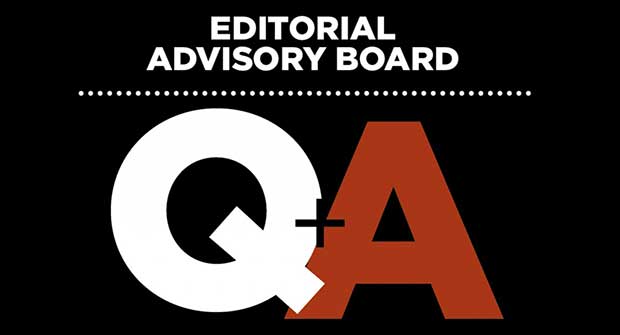The irrigation industry successfully flowed through 2024, and as we leap into the new year, many experts are looking at what’s in store for 2025.
Whether it’s optimism for new opportunities, worries about water scarcity or just general business advice, here’s what irrigation professionals have to say about the next 12 months.
Water Worries
Water scarcity, droughts and government regulations are becoming more and more prevalent throughout the world, and as the issue progresses, Chris Pine, president of IrriTech Training, says the irrigation and landscape industries are being more heavily scrutinized.
“Water resources are getting stretched. The landscape industry is coming under a microscope,” Pine says. “I think ongoing regulations are something that is shaping our industry steadily in more and more areas. There are more areas under some kind of restriction. That is forcing the industry’s hand on the practices that we follow.”
However, with these new and stricter rules to follow, Pine says it can also lead to new, exciting technology as a solution. For example, smart controllers continue to grow in popularity, and Pine says with how advanced they’re becoming thanks to improved soil and weather sensors, they can save an incredible amount of time and money.
But while new ideas continue to sprout in response to irrigation challenges, not every solution can be the best. Dave Shoup, category manager for Hunter Industries, says water shortages and regulations are now leading some prople to reduce or eliminate turf in general in favor of synthetic grass, granite or other non-vegetative sources.
“Finding a way to sustain an intelligent green climate, that’s the solution,” Shoup says. “I think we’ll see a trend back to that as we start to realize that paving all of Southern California with plastic grass and decomposed granite is actually exacerbating a heat and drought problem, not a solution.”
Business Management
Another kind of shortage that is expected to stay in 2025 is labor-related. Ray Thengvall, president of The Frog Hollow Green Group in California, says he thinks the irrigation industry is in a good place, but finding qualified people to work with new technologies is difficult.
“That is our biggest hurdle to get over — finding people that are interested or want to learn how everything works,” Thengvall said.
For Pine, he thinks a big business management and training solution is closer than expected. Artificial intelligence is being used more and more as a business tool, and Pine says he’s excited to see how it assists with certain tasks in electronic communication, marketing, scheduling and technician training.
“We’re just starting to see that. I think in a few years, that will start to become more and more commonplace,” Pine says. “There’s going to be more models for how that’s being used.”
2025 will also be the first year under a new presidential administration, and depending on what side of the political spectrum you’re on, Pine says to keep an eye on any changes to the cost of materials if the proposed tariffs take effect.
Optimistic outlook
Despite the challenges that the irrigation industry has faced in recent years, many experts are still looking at 2025 with high hopes for growth and opportunity.
Richard Restuccia, senior vice president at Husqvarna Group, says with how technology is adapting to irrigation challenges, he’s happy to see his company and the industry as a whole progress.
“I think we’ve got better opportunities and better progress on this than we ever have before,” he says.
Pine says the industry has also matured and strengthened enough to not see many drastic changes once the new year begins, meaning if you survived 2024, you’re in an industry that can survive 2025.


